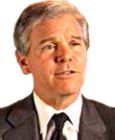ADHD
Truth and Consequences in Psychiatry
Why is it important to understand post-modernism in psychiatry?
Posted August 24, 2008
No scientific theoretical model is completely divorced from the values of the society and power of its time and place. Nassir Ghaemi and I have been asked by Psychology Today's editors to begin a Cross-Talk blog. I was willing to begin by following up on something Nassir wrote about "truth" in psychiatry (the quote is added by me) in a previous post of his on conflict of interest issues in psychiatry
For the sake of the record, here is what Nassir wrote: "To me, the crux of much of this gets to how we understand science. Science is not about adversarial viewpoints that compete with each other, and in fact glory in such confrontation - as, say, in the law, or in the political theory of democracy (countervailing forces). In science, we actually believe there is a truth, and we need to find and speak the truth. This is not the same, by the way, as being "balanced", a phrase commonly used in our current debates about conflict of interest; one cannot be "balanced" about the truth: the truth is the truth. If I show in my research that lithium level of 5.0 will kill patients, it is not anyone's responsibility, nor at all appropriate, for others to try to do research that shows that a lithium level of 5.0 is safe. Unfortunately, much of our thinking about such matters is suffused with a cultural postmodernsim, with deeply held assumptions about the relativity of truth. "
For the life of me I never understood what post-modernism meant in art and architecture. It wasn't until I read Moving Beyond Prozac by the NYU psychiatrist Bradley Lewis that I finally got it. I hadn't realized all these years in my worry about the power of DSM and biological psychiatry that philosophically I might be a post-modernist. I thought I was being a good behavioral pediatrician to recognize the power of inherent child temperament (the nature factor) and the power of family and educational systems (the nurture factor) in framing behavior as a problem in the most accurate and ethical manner (italics intentional -- check in later).
I was fully committed to George Engel's biopsychosocial model of health and illness. That's why when Nassir started ciriticizing the model in his writings and books I was intrigued enough (because I heard that Nassir was smart and he is) to check him out. I've told him I read his book, Concepts of Psychiatry, and didn't get it. It seemed overall as a defense of the multiple duchies that make up the Psychiatry Department at Harvard. Anyway, what is all this post-modernism about, especially as it relates to psychiatry and mental health and illness?
As far as I understand it "modernism" represented a post-Enlightment, primarily 19th Century ideal, that posits there are specific answers to problems not only in science but in life. All that is required are specific questions and accurate "scientific" models for the answers. Science in this case is represented by a notion of unbiased trial and error experimentation. However, by the early-mid 20th century philosophers and critics began to challenge the universality and rigidity of the modernist viewpoint. They recognized that no standard (scientific or otherwise) operates in a social/power vacuum and that the prevailing theories most often reflect the society and power of its time -- which until recently in Western thought was the province of wealthy, older, white guys (like me).
I would submit to Nassir that the most fundamental aspects of any theoretical system (here DSM III) are also its most challengeable. Hey, DSM III in its early most theoretical form was a big improvement over the previous "truth" of DSM II (which at best in its confusion could be at least ignored). But diagnosis in DSM III was categorical (either you had it or you didn't) and individually based -- a big problem for a guy like me dealing primarily with the problems of children presenting to the adult world. Everyone knows that most problems at least in kids (but in adults too) are dimensional in nature and how can you leave out the effects of family, school and neighborhood on children's behavior. For the moment, I won't go any further in my criticisms of DSM III. I want to move on to working under its dictatorship.
Very quickly (as planned, I believe) DSM III took on a biological and concrete sheen. These disorders, primarily the work of "expert" groups (older, white men with power), were no longer theoretical constructs but "real" biological entities (with barely a modicum of proof). I believe organized psychiatry (power again) was desperately looking for a way to maintain its power within the very powerful medical establishment. It took towards copying the "medical model" ,which had conferred many benefits to society (and doctors) but also has major ethical lapses, rather than leading the rest of medicine to a more complete and ethical biopsychosocial model.
The word ethical comes up again. Let me explain. When a diagnostical model focuses on the individual, socially oppressive factors that compromise health are ignored. When one ignores poverty, violence, prejudice, etc., one is essentially treating the victims of society (and perhaps their genetic vulnerability to stress). Surely in extreme cases, social/environmental factors stll play a role but the patient still has a problem. Thus a developmentally delayed, very hyperactive child with a seizure disorder likely has clear neurological problems and should have access, perhaps immediately to medication.
But the vast majority of patients presenting to doctors under the dimensional bell-shaped curve of illness have less severe problems. I have used this example many times, to explain my hesitance about immediately prescribing Ritalin to children who are only mildly to moderately hyperactive. I liken it to a doctor who chooses to continue to rehydrate, orally or intravenously, children suffering from diarrhea and dehydration while ignoring a factory upstream that may be polluting the river and causing the disease. At the minimum to only treat the dehydration and not speak up and attempt to address the cause (or at least a contributing factor to the illness), the physician becomes complicitous with factors inimical to his/her patients. This individual model of the DSM is most redolent of this complicity, especially when it comes to dealing the problems of children (ADHD, bipolar, whatever).
Furthermore, the "modernism" of DSM III, this "truth" that Nassir refers to, purports to make any challenging or contradictory model "unscientific" and unworthy of real scientists' interests. This is where the model becomes hubristic and totalitarian for a practitioner like me. Though I might add the real practical power of DSM III (IV and beyond) has been its value as a billing system for penurious third party payers.
Yes, a high lithium level is definitely worth paying attention to. Ritalin definitely "works" (at least on the short term). None of this is deniable or unimportant. But the very foundations that make it important are potentially oppressive and limited. Again I speak from the position of thirty years of dealing with children's problems. But when Joe Biederman and company speak (with the power of Fortune 500 drug companies supporting their platform), my concerns fit into a thimble compared to their ocean of power.
I agree with Nassir, that the post-modern solutions for psychiatry are too messy to be practical but I think the powers of organized psychiatry could do more to acknowledge context and the psychosocial aspects of behavior. It was great to read Robert Spitzer's (the father of DSM III) preface to Horowitz and Wakefield's The End of Sadness. Similarly I'm intrigued that Paul McHugh is mentioned as a co-author of the paperback version of Nassir's Concepts of Psychiatry (have there been some changes). I know Paul as one of the most sensible curmudgeon's of the psychiatric establishment.
So there -- a first pass at a public discussion of what may seem like an esoteric topic to many of you but I believe is fundamental to the course of mental health and illness of our country -- at least to the limits that the powers that be allow us professionals to have some influence on that course. I'm very interested hear what Nassir thinks.




